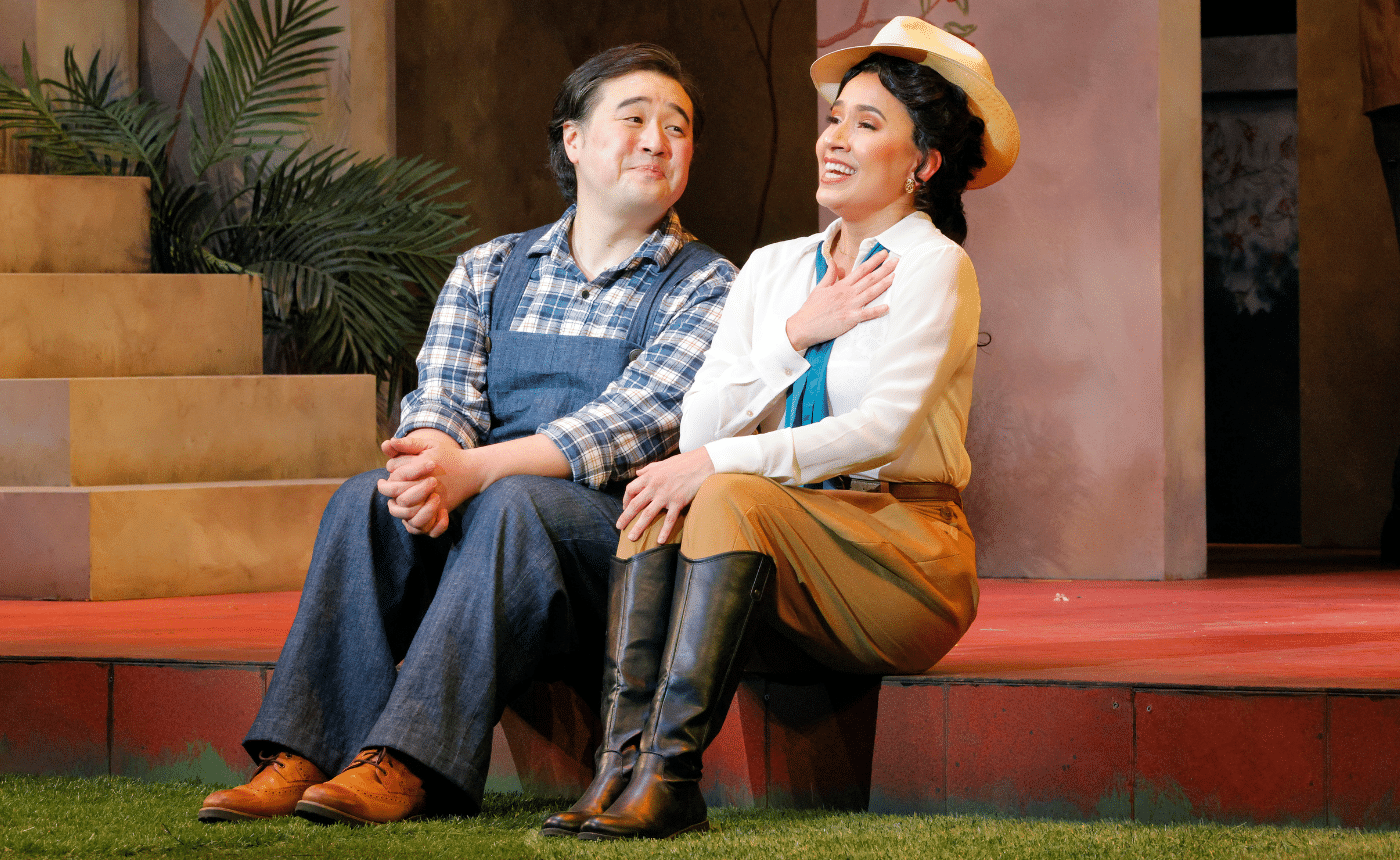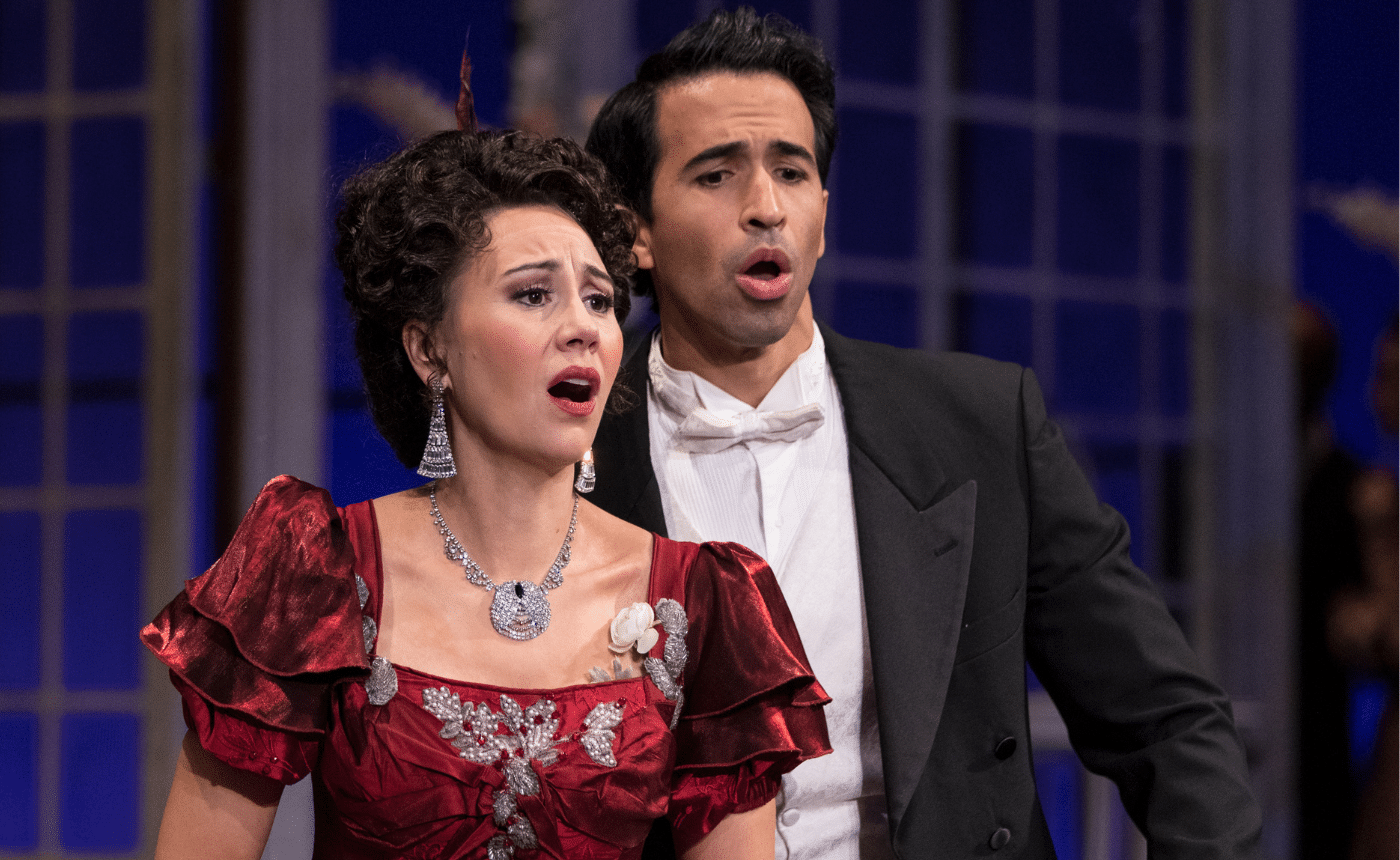Yes, This Is Opera. Can You Handle the Truth?
You could have gone out to see a movie. The stresses of war and its aftermath — all-encompassing to those who experience them, remote and unfathomable to the rest of us — have been explored in gripping films and books. But none of these art forms can do what opera does for us, stopping the clock and using the combined power of music and words to make us feel the emotion of life’s most intense experiences. Few of us will ever have direct knowledge of life in an Explosive Ordnance Disposal unit, but The Long Walk brings us closer to its effects than we could have imagined. The consuming tension, damage and loss are somehow made knowable through music. The truthfulness of composer Jeremy Howard Beck’s and librettist Stephanie Howard’s depiction finds beauty and deep humanity in the true story of soldier Brian Castner and his family as he struggles to regain a life away from war. That is why, despite moments of unflinching bleakness, The Long Walk uplifts us.
Based on Castner’s acclaimed memoir of his return from the Iraq war, The Long Walk was commissioned by the American Lyric Theater and received its premiere production at Opera Saratoga in 2015. As a prose account of one man’s experience, The Long Walk: A Story of War and the Life That Follows drew widespread attention and critical praise. Readers recognized it as one of the most important war books of its time, and the rapid transition from publishing house to opera house — just three years — gained the attention of journalists far beyond the usual classical music crowd. Feature stories popped up on National Public Radio and in the Sunday magazine of The New York Times. They described Castner’s story as important and moving…but also as an improbable, ambitious subject for an opera.
Important and moving? Undeniably so. Excerpted from his website, here is Castner’s straightforward description of his book’s premise:
On February 6th, 2010, I went Crazy. I didn’t know why, or how to fix it. I just knew it was intolerable, and it had to stop, one way or the other. I make sense of the world by writing, so to understand what was happening to me I wrote a book about it, the best way I knew how.
The Long Walk: A Story of War and the Life That Follows is the intertwined story of two journeys: an outward struggle of surviving the urban combat of modern war in order to return home at all costs, and the inward journey to find the new person that emerges after undertaking such a task. I had the privilege to command two Explosive Ordnance Disposal units in Iraq. We disrupted roadside improvised explosive devices, investigated the aftermath of car bombs, and searched house-to-house to find bomb makers where they lived. It was a job I embraced and enjoyed, and I found meaning in the work and camaraderie in the Brotherhood of operators who do that job. And despite being surrounded by the gory horrors of war and facing near-death experiences, I somehow never considered what life would be like once I went on the final call to dismantle a roadside bomb.
Once I got back to the United States and left the military, once I was home alone with nothing but my thoughts, I couldn’t put the war aside and move on. Even as I had trouble remembering the formative moments that comprised my former life – children being born, family milestones – small everyday occurrences reminded me of each mission in Iraq, and the experience of the war endured. After countless trips to the hospital emergency room for heart attacks that never happened, I realized that the problem was in my mind. This book examines my struggle to confront the new person who came home from Iraq.
An ambitious subject for an opera? Undeniably. But improbable? Far from it. From opera’s very beginnings as an art form, composers and librettists have chosen to create music dramas that explore the most important ideas of their times. In Monteverdi’s day — four centuries ago — that meant moralistic allegories from Classical mythology or history: gods and goddesses, queens and emperors. In the 19th century, Rossini and Verdi set labyrinthine historical epics and aristocratic family melodramas to music. Puccini and his contemporaries shocked audiences by bringing down-and-dirty sex and violence onto the opera stage.
Throughout this long progression of tastes and musical styles, many principles of operatic composition have remained constant. Foremost among these: The beauties of opera lie not so much in pretty melodies as in music that truthfully reveals human emotion. This is why The Long Walk is most beautiful in some of its most painfully raw moments. As an almost geometric proof of this opera’s place in a centuries-old tradition, we can draw a direct line from Mozart’s Countess in The Marriage of Figaro to the character of Jessie, Castner’s wife in The Long Walk. Both characters are strong, troubled women. Struggling to save their endangered marriages, both sing immensely moving arias in which they confront their respective dilemmas. In the Countess’ beloved Act III aria “Dove sono”, she remembers the romantic early days of her marriage and laments their passing, and then, interrupting herself in the aria’s second da capo (“from the top”) stanza, she picks up the tempo in a brilliant high-energy cabaletta and resolves to win back her philandering husband.
The aria we could call Jessie’s “Dove sono” occurs in the opening moments of The Long Walk, framing the entire opera as she remembers asking her grandmother’s advice to prepare for her husband’s return from Iraq. Grandma’s words are oracular and disturbingly grim:
“…if the war doesn’t kill him,
It’ll take him here.
The war will kill him at home. With you…”
Grandma has wisdom borne of sad experience, but Jessie challenges it. And as she expresses her resolve to fight — though it does not come in a brightly lit cabaletta — we can glimpse the opera to come.
“…But Grandma,” I said. “I won’t live in dread.
He’s coming home. And when he does,
Your story — it’s not coming true.
Not on my watch. Not to this family.
It can’t happen here. I’m going to keep us whole.”
With these words we understand that The Long Walk dramatizes not just Brian Castner’s agonized return from Iraq, but also his family’s struggle to welcome him back.
A passage from the July 10, 2015 New York Times feature by C.J. Chivers — “An Iraq Veteran’s Homecoming, With Arias” — shows just how ambitious this conception proved, even venturing beyond the scope of Castner’s original narrative. Sitting alongside Chivers at a rehearsal, Castner watched for the first time a telling scene depicting his real-life wife and their real-life sons’ sense of relief while he is away on a business trip. Chivers writes:
Virgil, one of their sons, dares to say it: “I wish Daddy wasn’t coming home.”
Jessie snaps back. “You don’t mean that,” she says.
But he does.
…”This is tough to watch,” [Castner] said…”But it’s true.”
Those two words, “it’s true,” may be the highest praise any opera can deserve.




